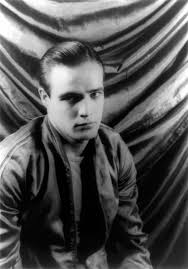
Introduction: The Impact of Marlon Brando
Marlon Brando, often hailed as one of the greatest actors of all time, redefined the boundaries of performance and brought realism to the screen. His approach to acting and emotive power changed the landscape of Hollywood, influencing generations of actors. Brando’s illustrious career spanned several decades, and his legacy continues to resonate within the film industry today.
Brando’s Career Highlights
Born on April 3, 1924, in Omaha, Nebraska, Brando’s entrance into acting began at the Actors Studio in New York City under the guidance of Lee Strasberg, where he embraced the Method acting technique. His breakout role came in 1951 with ‘A Streetcar Named Desire,’ where his portrayal of Stanley Kowalski captured the essence of raw emotion and spontaneity.
Brando’s career skyrocketed with additional iconic performances, including his role as Vito Corleone in Francis Ford Coppola’s ‘The Godfather’ (1972), for which he won his second Academy Award for Best Actor. His delivery of the line, “I’m going to make him an offer he can’t refuse,” has become ingrained in pop culture. Other notable films include ‘On the Waterfront’ (1954), ‘The Wild One’ (1953), and ‘Apocalypse Now’ (1979), showcasing his versatility as an actor.
Brando’s Personal Life and Activism
Beyond his film career, Marlon Brando was known for his tumultuous personal life and profound commitment to various social causes. He was an outspoken advocate for civil rights and Native American rights, famously refusing his Oscar for ‘The Godfather’ in protest against Hollywood’s portrayal of Native Americans.
Brando’s life was not without controversy; his reclusive tendencies and eccentric behavior often made headlines. Despite this, his influence on both acting and societal issues remains significant, affirming his status as a complex figure in American history.
Conclusion: The Enduring Influence of Marlon Brando
As we reflect on the life and career of Marlon Brando, it is vital to recognize his lasting impact on cinema and culture. His innovative approach to acting paved the way for the method acting movement and inspired many contemporary actors to embrace authenticity in their performances. Brando’s commitment to social justice remains a powerful reminder of the role that artists can play in advocating for change. His legacy is a testament to the transformative power of storytelling, ensuring that Marlon Brando’s influence will continue to be felt for generations to come.



